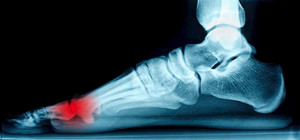
(908) 381-8160Berkeley Heights
 The bones that are found under the big toe are known as the sesamoid bones. They are located within the tendons of the big toe, and can become inflamed. When this occurs it is called sesamoiditis. This can happen as a result of a stress fracture, or from a medical condition such as osteonecrosis. Additionally, the sesamoid bones can become damaged from overuse if sporting activities are frequently practiced. When a new exercise regime begins, it is beneficial to start slowly, and gradually build intensity. Another effective way of protecting the sesamoid bones is by alternating the type of exercises that are done. If you feel you have developed this ailment, it is advised that you consult with a podiatrist who can properly treat this condition.
The bones that are found under the big toe are known as the sesamoid bones. They are located within the tendons of the big toe, and can become inflamed. When this occurs it is called sesamoiditis. This can happen as a result of a stress fracture, or from a medical condition such as osteonecrosis. Additionally, the sesamoid bones can become damaged from overuse if sporting activities are frequently practiced. When a new exercise regime begins, it is beneficial to start slowly, and gradually build intensity. Another effective way of protecting the sesamoid bones is by alternating the type of exercises that are done. If you feel you have developed this ailment, it is advised that you consult with a podiatrist who can properly treat this condition.
Sesamoiditis is an unpleasant foot condition characterized by pain in the balls of the feet. If you think you’re struggling with sesamoiditis, contact Dr. Janet Leicht of New Jersey. Our doctor will treat your condition thoroughly and effectively.
Sesamoiditis
Sesamoiditis is a condition of the foot that affects the ball of the foot. It is more common in younger people than it is in older people. It can also occur with people who have begun a new exercise program, since their bodies are adjusting to the new physical regimen. Pain may also be caused by the inflammation of tendons surrounding the bones. It is important to seek treatment in its early stages because if you ignore the pain, this condition can lead to more serious problems such as severe irritation and bone fractures.
Causes of Sesamoiditis
Treatment for sesamoiditis is non-invasive and simple. Doctors may recommend a strict rest period where the patient forgoes most physical activity. This will help give the patient time to heal their feet through limited activity. For serious cases, it is best to speak with your doctor to determine a treatment option that will help your specific needs.
If you have any questions please feel free to contact our office located in Berkeley Heights, NJ . We offer the newest diagnostic and treatment technologies for all your foot and ankle needs.
Read more about Sesamoiditis